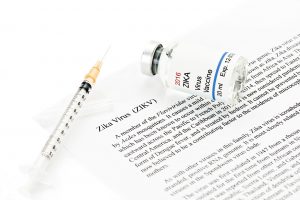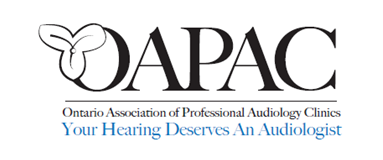Zika Virus and Hearing Loss

Zika virus (ZIKV) has become increasingly present in the news since 2015 when it rapidly spread across the Americas. Symptoms of the virus can range from a fever and rash to more severe symptoms including Guillain-Barré syndrome, hearing loss, and meningoencephalitis. (1)
In February 2016, the Zika virus was declared a public health emergency by the World Health Organization. Currently, there is no specific anti-viral treatment or vaccine available. (4) Public health efforts have focused instead on prevention, especially in pregnant women where the infection can be transmitted to the fetus.
Exposure to the Zika virus prenatally has been linked to hearing and vision deficits and microcephaly (2). The type of hearing loss typically diagnosed in individuals with congenital infection of the virus is sensorineural, where damage is present in the inner ear and is permanent. All children who are exposed to the virus prenatally and congenitally are urged to have hearing monitored regularly as the onset of hearing loss can be delayed or the hearing loss can progress. (3)
Zika virus is becoming known to have an abundance of potential side effects to those infected, especially prenatally and at birth, and while more research is required on the subject, it is clear that the potential impact of the virus on hearing loss is not one to be overlooked. Monitoring hearing in individuals who have been infected with the virus, especially infants born from women infected while pregnant, is crucial for early identification and treatment of hearing loss.
QUOTES
“The type of hearing loss typically diagnosed in individuals with congenital infection of the virus is sensorineural, where damage is present in the inner ear and is permanent.”
“All children who are exposed to the virus prenatally and congenitally are urged to have hearing monitored regularly as the onset of hearing loss can be delayed or the hearing loss can progress.”
“Monitoring hearing in individuals who have been infected with the virus … is crucial for early identification and treatment of hearing loss.”
Other Resources:
https://www.sciencedirect.com/science/article/pii/S1808869416301276
httpss://www.ncbi.nlm.nih.gov/m/pubmed/27079865/?i=6&from=/27444419/related
About the Author:

Sabrina DeToma is a licensed Audiologist with a Doctor of Audiology degree, the highest academic credential in the field of Clinical Audiology. She independently owns and operates her private practice Salus Hearing Centre in Vaughan, Ontario. Sabrina DeToma has over 10 years of experience working at St. Michael’s Hospital (Toronto), North York General Hospital and various private practices in the Greater Toronto Area. Her specialty area is in the hearing-related conditions of Tinnitus and Hyperacusis. She holds a certificate in Tinnitus Retraining Therapy and is one of two Audiologists in Ontario with a post graduate certificate in the Advanced Studies of Tinnitus and Hyperacusis. Sabrina DeToma uses her expertise, together with leading edge diagnostic tools and state of the art equipment and technology, to meet her patient’s hearing needs. Her focus is on preventative hearing healthcare. She works closely with other health professionals to offer a holistic approach to hearing healthcare.
You can visit her practice website at www.salushearing.com


